Fierce fighting continues in Sudan despite hours-long humanitarian pause
Fierce fighting has raged on in Sudan's capital for the second day between the army and the powerful paramilitary Rapid Support Forces (RSF), despite an hours-long pause announced to address urgent humanitarian needs on the ground.
Violence erupted on Saturday following weeks of power struggle between army chief, Abdel Fattah al-Burhan, and his deputy, Mohamed Hamdan Daglo, also known as Hemedti, who heads the heavily-armed RSF.
The fighting dragged on into Sunday, killing three World Food Program (WFP) staff among more than 50 civilians throughout the country.
Sudan Doctors Union said early Monday that at least 97 people have been so far killed in clashes, while 365 others have been injured.
Late Sunday afternoon, the army said the warring sides had "agreed to a United Nations proposal to open safe passage for humanitarian cases," including the evacuation of wounded, for three hours, which ended at 1700 GMT.
The RSF confirmed the measure, though, they said it would last four hours, and both sides maintained their right to "respond in the event of transgressions" from the other side.
Despite the pause, heavy gunfire could still be heard in central Khartoum near the airport, and dense black smoke billowed from the surrounding area.
On Saturday, Sudan’s armed forces had dismissed any possibility of negotiations or dialogue with the RSF "until the dissolution of the paramilitary."
This came after the RSF claimed its fighters had wrested control of several key sites, including the presidential palace, the residence of army chief, Burhan, and Khartoum International Airport.
The Sudanese army rejected all RSF's claims, and on Sunday, said they had gained control over key sections of the capital, including the radio and television building, previously occupied by the paramilitary.
As the fighting continues, medics are pleading for safe corridors for ambulances and a ceasefire to treat the victims because the streets are too dangerous for transporting casualties to hospital.
The ongoing violence in Sudan has caused great concern, with many countries urging the opposing sides to show restraint and engage in dialogue to end the hostilities.
Neighbors Egypt and Chad have already closed their borders with the violence-wracked country.
In addition, there have been urgent demands for an end to the fighting from across the region and the globe, including the US, Britain, China, the European Union and Russia, with Pope Francis urging dialogue.
The UN says one-third of Sudan's population needs humanitarian aid as the WFP announced that it was suspending its operations in the impoverished country after three of its workers were killed.
The African Union said one of its senior officials would "immediately" go to Sudan on a ceasefire mission following a meeting of the regional body on the situation there.
The Arab League, for its part, held an emergency meeting in Cairo, at the request of Egypt and Saudi Arabia, calling for immediate ceasefire in the country.
Also on Sunday, UN Secretary-General Antonio Guterres condemned the clashes, demanding swift justice over the killings.
Guterres "strongly condemns the deaths and injuries of civilians, including the death of three staff members of the World Food Program in North Darfur, with a further two seriously injured," the UN chief's spokesman, Stephane Dujarric, said in a statement, adding, "Those responsible should be brought to justice without delay."
The UN chief also reiterated his call for an immediate halt to the fighting and "a return to dialogue," stressing that he remains engaged with regional leaders and with Sudanese stakeholders "to find a way out of this crisis," Dujarric added.
The RSF was created in 2013 and its planned integration into the regular army was a key element of talks to finalize a deal that was hoped to restore Sudan's civilian transition and end the politico-economic crisis sparked by the military's 2021 coup by Burhan and Daglo.
The ongoing fighting, though, has stoked fears of a prolonged conflict that could plunge the country into deeper chaos, dashing long-held hopes for a transition to civilian-led democracy.
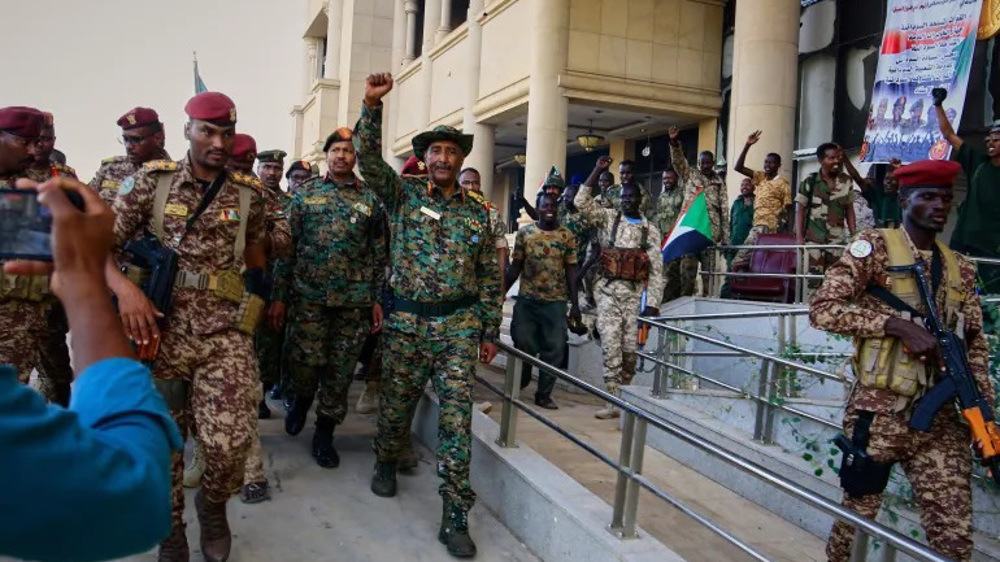
Sudan army takes full control of Khartoum amid RSF defiance
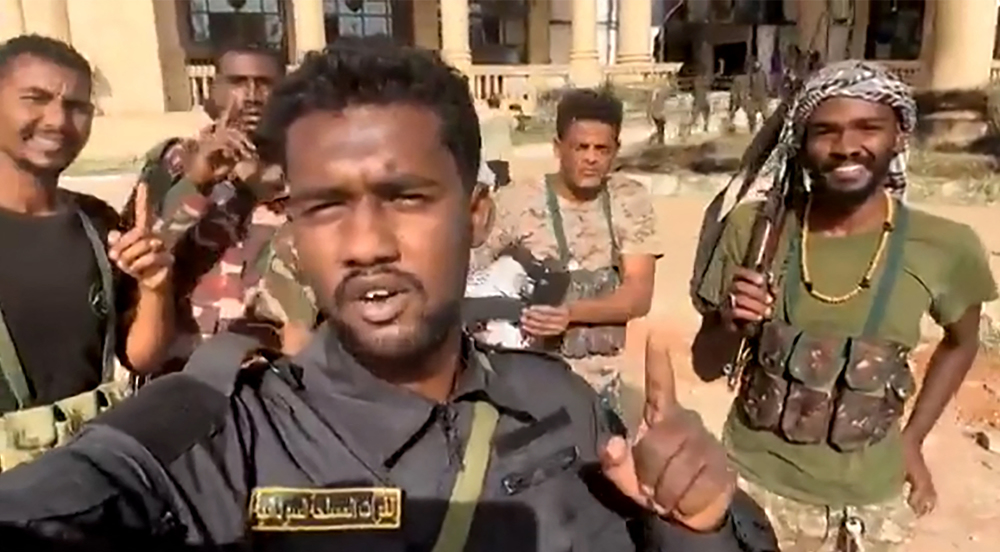
Sudan army recaptures Khartoum presidential palace
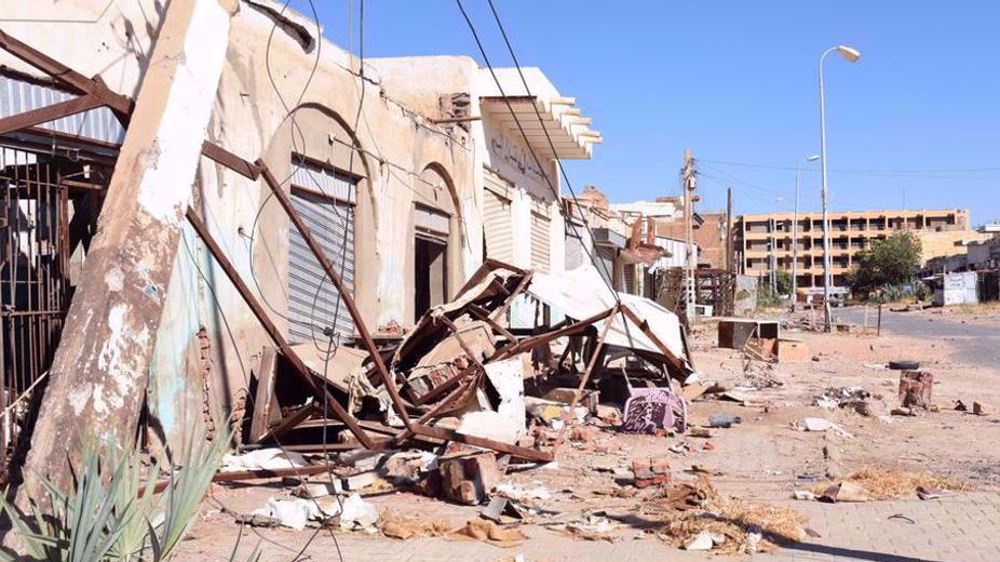
Sudan takes UAE to UN court over 'complicity in genocide'
Israel plans to cut off Rafah from rest of Gaza by establishing new corridor
Araghchi says no round of talks held between Iran and US
Rocket barrage launched from Gaza strikes Israeli port of Ashdod
Iran’s gas oil production up by over 8% in H2 last calendar year
VIDEO | Press TV's News Headlines
Rafah 'wiped off the map' by Israel's ethnic cleansing campaign
VIDEO | Yemen accuses US of targeting civilians in Eid airstrike
Iran posts $14.6bn trade deficit for calendar year to late March


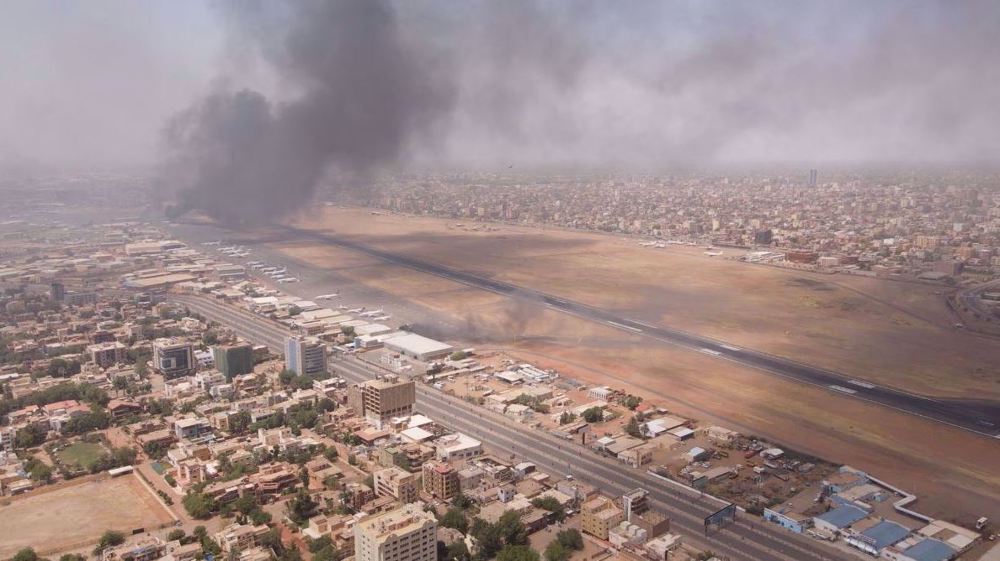
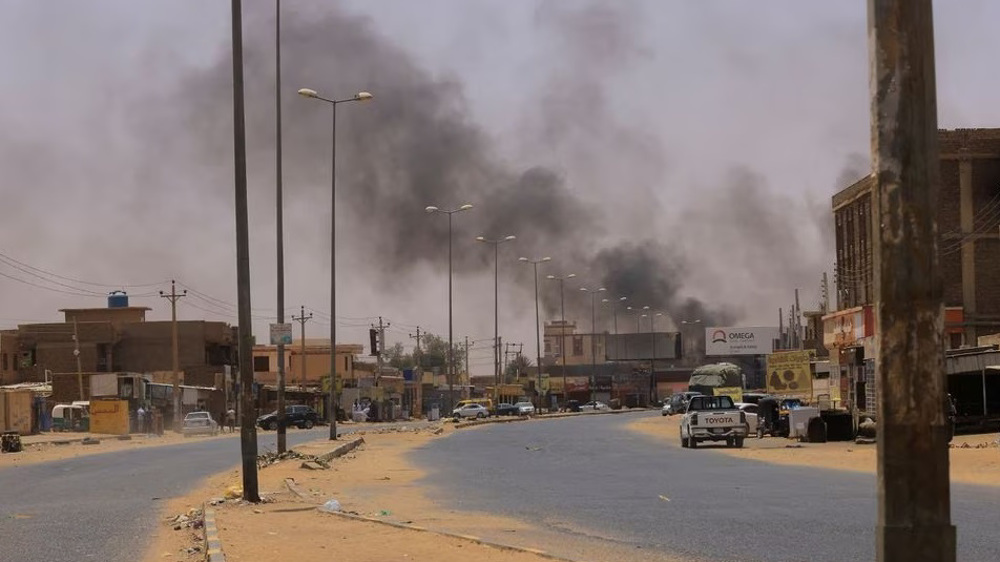
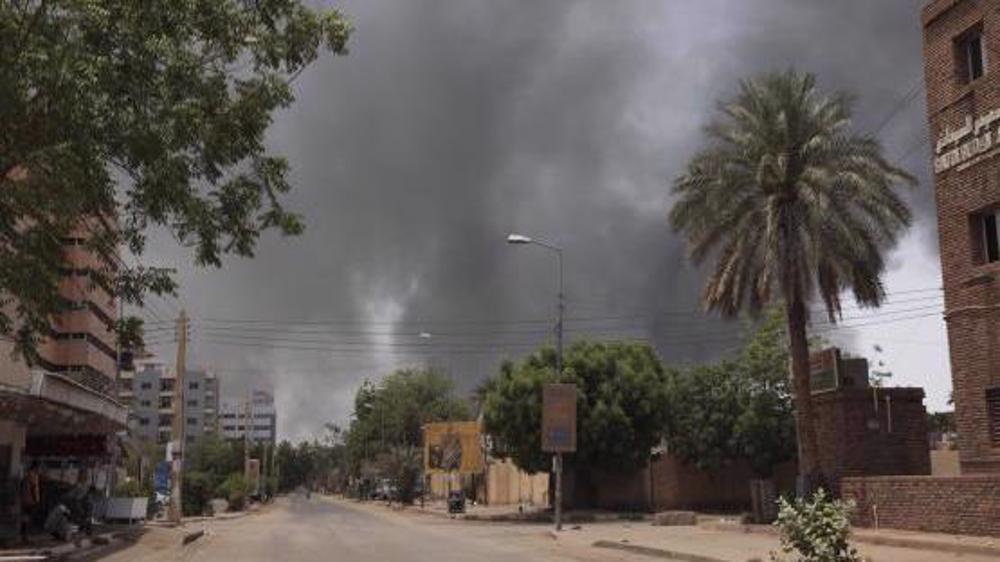
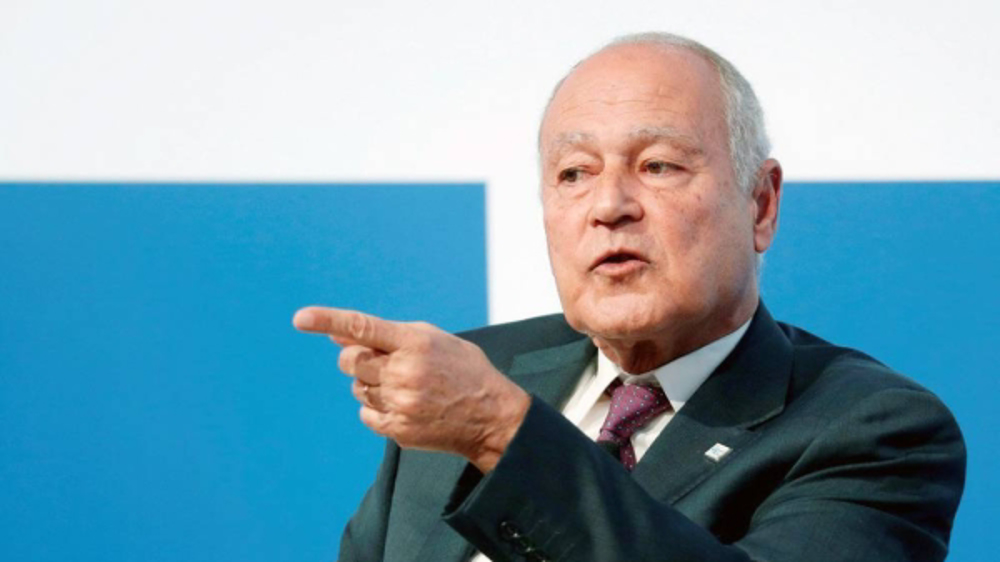



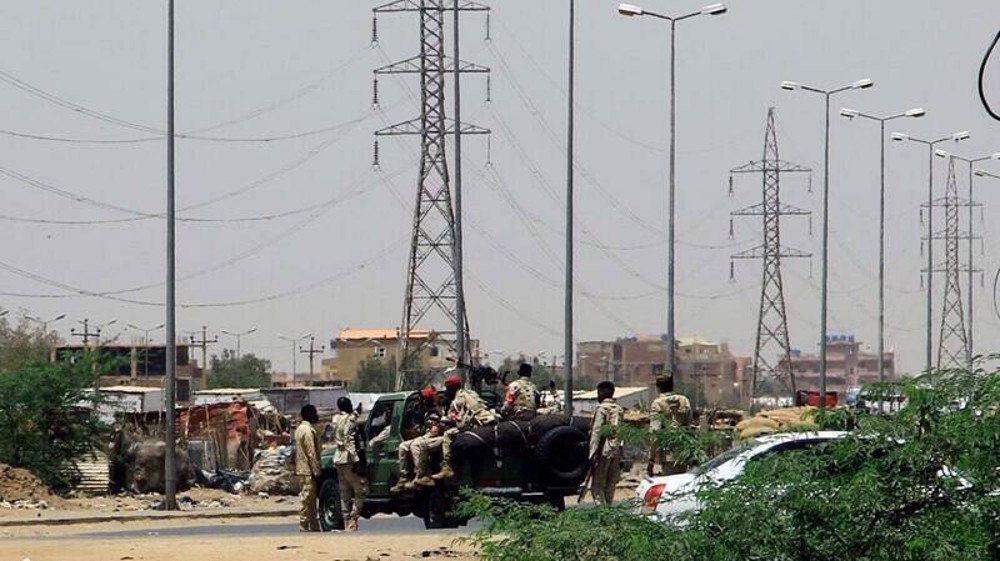
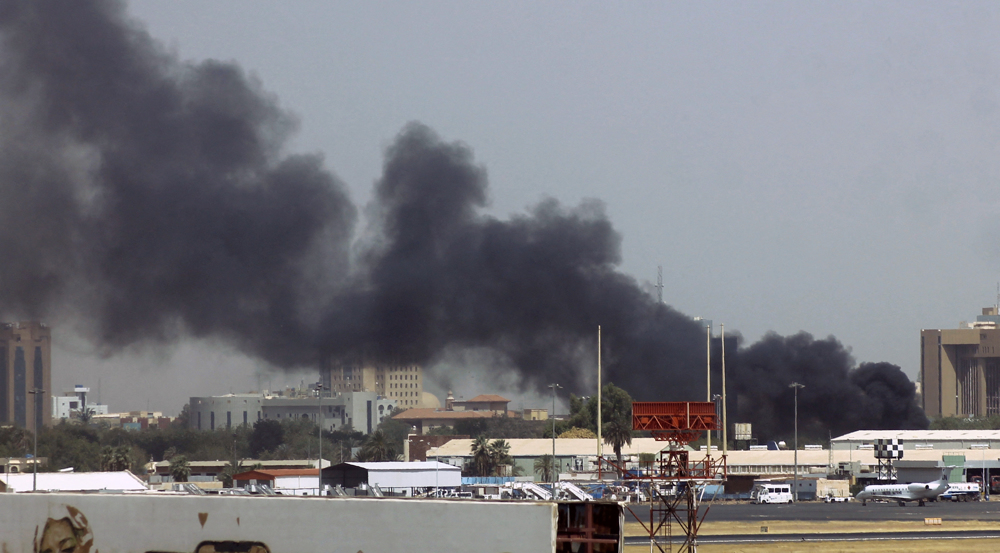

 This makes it easy to access the Press TV website
This makes it easy to access the Press TV website